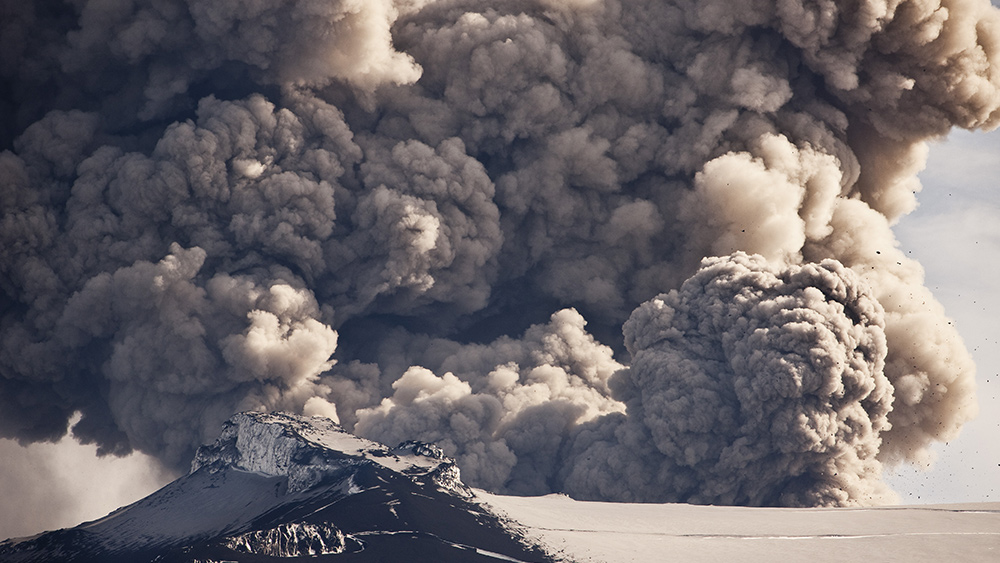Dangerous heat wave expected to set record highs throughout US South and Southwest
07/16/2023 / By Cassie B.

Last month may have been the hottest June on record, according to the National Oceanic and Atmospheric Administration, but July is already on track to set a similar record. Right now, the U.S. south and southwest, which are already suffering excessive heat, are preparing for conditions to get even worse as a record-breaking heat wave approaches.
The National Weather Service has already issued a series of excessive heat warnings and advisories for more than a dozen states. This means that people are being advised to limit their outdoor activities to minimize their chances of suffering heat-related illnesses.
Triple-digit temperatures are expected to be seen in most of Texas, as well as California and the southwest, except in coastal areas and the mountains. In fact, some locations in the desert southwest are expected to be in the 110s and 120s.
One area that meteorologists will be watching closely in the coming days is Death Valley, California, where the National Weather Service predicts that the Furnace Creek location could reach as high as 131 degrees on Sunday. Should this occur, it will mark the hottest temperature to be recorded anywhere on Earth.
Another area of interest is Phoenix, where Monday could end up being the 18th day in a row in which temperatures reach 110 degrees or higher, which would tie a city record. Temperatures there might also set a new record for a streak of days during which the temperature does not dip below 90 degrees. Some meteorologists believe it could ultimately prove to be Phoenix’s hottest week on record.
Those hoping to beat the heat by switching their outdoor activities in the morning will be disappointed to find that the morning lows in many areas are expected to be uncomfortably high as well. For example, the low in Phoenix may be in the low to mid-90s on several mornings in the coming days; their morning low on Thursday was a sweltering 95 degrees, just as degree away from the city’s hottest low temperature on record.
The heat wave is caused by a heat dome, which is a strong area experiencing high pressure within the upper atmosphere. This pressure sends air toward the ground, compressing it and raising its temperature further.
According to forecasts, the high-pressure dome will continue to make its way across the southern part of the country throughout next week, and daily records in many areas are expected to be matched or broken. In addition to inland California and Texas, Nevada, New Mexico, western Colorado, Arizona and Utah are expected to see daily record highs.
Deadly heat wave strikes Europe
Europe is also experiencing unusually high temperatures, with a deadly heat wave breaking temperatures throughout the continent and compromising health among locals and tourists alike during the high season. Intense heat and temperatures above 104 degrees are being seen in Italy, Spain, Croatia, Greece and France.
In a statement, the European Space Agency (ESA) noted: “Temperatures are sizzling across Europe this week amid an intense and prolonged period of heat. And it’s only just begun.”
Fifteen Italian cities were under extreme health risk warnings Friday, including tourist hotspots like Rome and Florence. On the Italian islands of Sicily and Sardinia, temperatures are expected to approach the European temperature record of nearly 120 degrees Fahrenheit. Several tourists collapsed from heat stroke this week in Rome, and at least one person has died from the heat.
In areas experiencing high temperatures, people are advised to stay indoors and avoid exercising during the hottest hours of the day. If you must go outside, be sure to stay in the shade and wear loose-fitting clothing. It is also important to drink plenty of water and avoid beverages that contain alcohol or caffeine. If someone feels nauseous, dizzy or lightheaded, seek help immediately.
Sources include:
Submit a correction >>
Tagged Under:
Death Valley, drought, Europe, Florence, food supply, geoengineering, heat, heat dome, heat wave, outdoor activities, Rome, Sicily, temperatures, upper atmosphere, weather
This article may contain statements that reflect the opinion of the author
RECENT NEWS & ARTICLES
COPYRIGHT © 2017 GEOENGINEERING NEWS




















